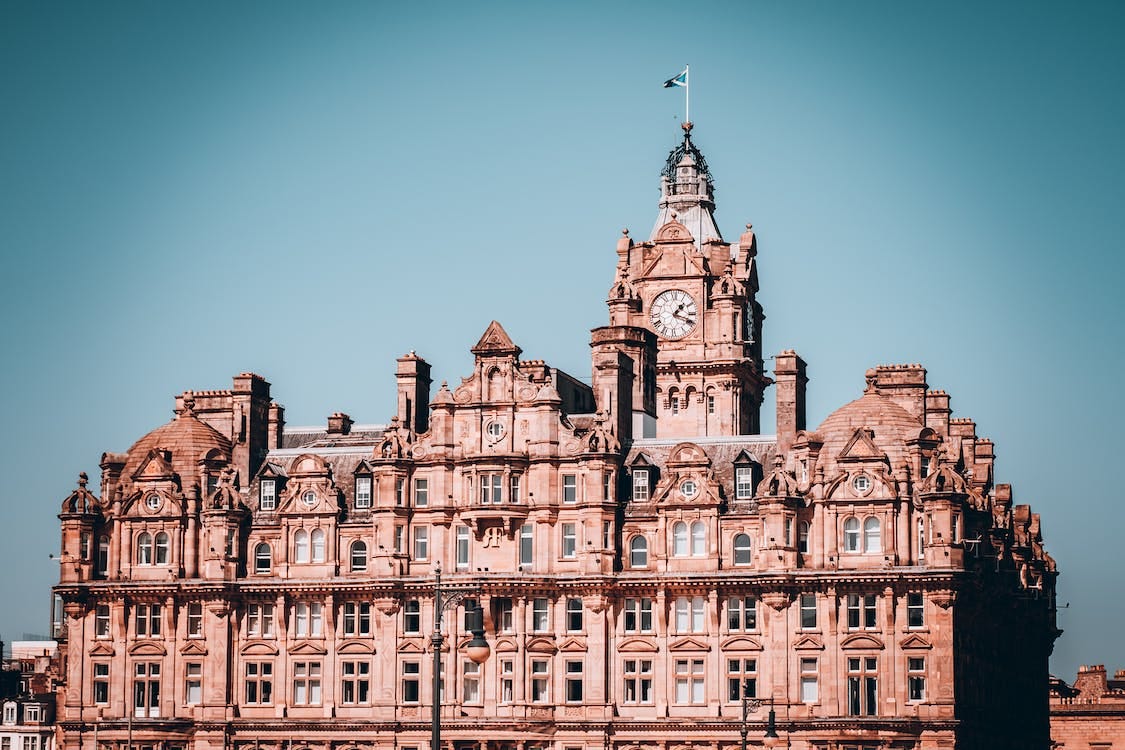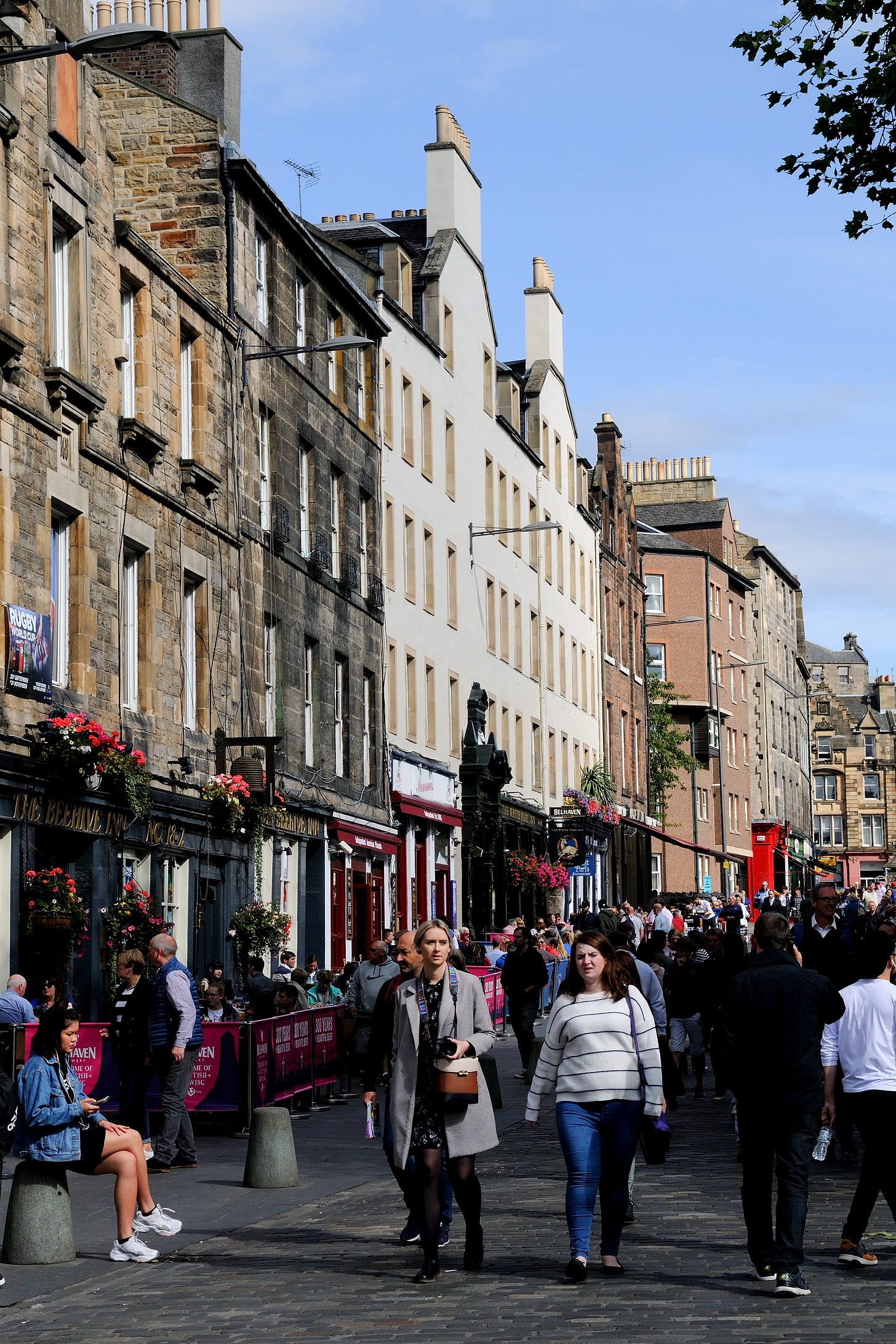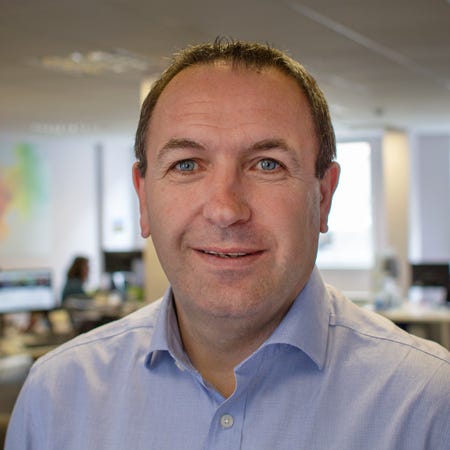Tourist Tax: A new deal or a duel for Edinburgh?
Debate is raging over how the tens of millions of pounds that a Visitor Levy would raise in the Capital could be spent
Will it be a new dawn – or pistols at dawn? As the prospect of a Visitor Levy for Edinburgh looms more clearly into view, positions are being taken, lines quietly drawn. Diplomacy continues, but trigger fingers are getting itchy.
The source of this tension? To misquote Benjamin Franklin, there is nothing more certain than death and tourist taxes. After years of lobbying for the power to impose a visitor charge, the city council unsurprisingly welcomes the new revenue source that recent legislation has enabled and the potential it brings. The city’s tourist and hospitality industry, on the other hand, is more nervous about the potential for unintended consequences.
Visitors face having the additional charge added to their hotel bills from 2026 as the Capital joins a growing list of destinations around the world from Venice to the Algarve asking tourists to pay a special levy.
Edinburgh is expected to be the first city in the UK to introduce such a full-scale tourist tax. Manchester has announced a £1-a-night charge at 74 city centre hotels who have formed a Business Improvement District for the purpose, but Edinburgh intends to go much further, levying an extra 4% on bills for all hotel, hostel, bed and breakfast, self-catering accommodation, campsite and caravan park stays.
That is estimated to raise £20-30m a year although with hotel prices rising in the Capital it is conceivable that the total could be considerably more.
A rainbow cast - of politicians, council executives, business leaders, tourist businesses, the hospitality industry and others - are girding their loins for the coming bun-fight over how this new pot of gold should be administered and spent.
Today, via the Edinburgh Inquirer, council leader Cammy Day expresses his confidence that the final say on spending will absolutely rest with the local authority - but stressed his determination to work with the sector to ensure the revenue is spent on supporting tourism. However, he reiterated his determination that the monies will also be used to benefit the wider city in “a win-win for all of us.”
Edinburgh is set to introduce the Visitor Levy - or tourist tax - after the Scottish Government introduced a Bill which, if approved, will give local councils the right to introduce a tax on any kind of accommodation used by the 5 million overnight visitors to the Capital each year.
It could provide the key to a bright, sustainable future for a growing and sustainable visitor economy, with the pathway set out and agreed by pretty much everyone in the Edinburgh Tourism Strategy 2030. The sector was already worth around £2bn a year to our local economy pre-pandemic, supporting 30,000 jobs. That is a lot of economic benefit, and investing in the strategy’s priorities to support the industry is definitely how the sector wants to see the money spent.
But civic leaders also maintain, understandably, that there is an obvious and increasing strain on the city’s resources and infrastructure caused by having millions of visitors using them, and that drain on increasingly stressed resources needs to be balanced. That opens the door to the prospect of the tourist tax millions being spent on anything and everything from street cleaning and transport improvements to improved facilities in local parks visited by tourists.
One thing is clear; the idea of the tax is publicly popular. Indeed, through the city’s own consultation on imposing a visitor levy, 90% of residents supported the idea.
SECTOR CONCERNS
The Bill says that monies raised should be used to support a sustainable visitor economy and improve and enhance the visitor experience. However the industry concern is that instead of the new money providing genuinely additional spending in the Capital, a chunk of it may be diverted to pay for existing, cash-starved services, simply plugging a hole in the local authority’s finances. Additionality and transparency are key words as far as the industry is concerned.
A second potential stumbling block is that the Bill stipulates that local authorities introducing a levy should ensure the industry is represented in the governance and decision making, but doesn’t really detail how that might work. Inevitably, there are concerns that if the final decision remains with the council and its elected members, little real influence will rest with front-line businesses. Councillor Day certainly believes his conversations with the Minister point firmly to the council ultimately being in control of spending the money.
Finally, and less reported, while there are strong signs that in Edinburgh a tax would likely start at 4%, there is absolutely nothing to prevent the council from simply introducing further increases in future.
PRIORITIES FOR COUNCIL
Cammy Day has made no secret of his desire to bring a tourist tax forward as speedily as possible – or his desire to widen the scope of what the cash can be used for.
“I've asked the Minister and the Minister is quite clear that the setting of the rate and the spending of the income is the council's responsibility. The council will make the final decision of what that spend is, because that's what the legislation will say, according to the minister, but absolutely we want to engage with the sector to see what they would like to see.
“We are doing workshops with the sector to talk about what that might look like. We're absolutely open to that ongoing honest discussion.
“For me the three priorities are: it should be spent on promoting culture and tourism generally; on the infrastructure that we have in place or need to put in place to support the responsible growth of tourism; and finally, that it should benefit the city, the whole city, so whether you live in Portobello or Pilton, you should see some benefit.”
WORKING TOGETHER
He reinforced that he and the council are committed to work with the industry to make this happen.
“How do we set up a process that ensures that the industry has an influence over what the decisions are? We're absolutely doing that, and I think something like the Strategic Implementation Group (charged with overseeing the delivery of the 2030 strategy) might be that vehicle. Do we get proposals to that group, they scrutinise, and recommend to the council committee what should go forward?”
“The tourist tax is absolutely not about filling potholes - but it might be about properly funding the clean-up of the impact of tourism on the High Street because to do that costs us about £1,000,000 every year in additional resources. I want to nail this myth that we're going to swipe the money to fill potholes - it's not going to happen. It will absolutely be about supporting tourism and culture and the city and responsibly making that dynamic even more successful.”
FUND THE STRATEGY THAT’S AGREED BY ALL
The 2030 Strategy identified a raft of ways in which growth of the tourism industry industry in Scotland can be managed in a way that delivers the city’s wider priorities around sustainability and social justice.
Some examples from the document include:
Edinburgh should be at the forefront of using new technology and data-driven solutions to manage the impacts of tourism more effectively, for example improve visitor capacity management in public spaces, visitor attractions and during peak periods
Ensure that Edinburgh’s tourism sector is delivering fair, inclusive and rewarding jobs for those who are employed in the sector
Establish a tourism sector-specific programme that contributes to the City of Edinburgh Council’s ambition for the city to transition to net-zero carbon emissions by 2030
Donald Emslie, Chair of Edinburgh Tourism Action Group, was careful to point out that there was “pragmatic acceptance” of the incoming tax, rather than downright welcome. And he was clear on where he thinks the main focus of spending should lie:
“There is a Tourism Strategy for Edinburgh till 2030, produced by ETAG and partners including Scottish Government and City of Edinburgh Council. It is designed to deliver a greener, fairer and thriving visitor economy for the city. Before the pandemic, that economy was worth £2bn a year to the city.”
“Surely it would be entirely logical to ring fence these funds to deliver that strategy, one which meets the aspirations of the sector, the city and the Scottish Government?”
“The sector is ready to play its part in the opportunity that the new tax presents. But so much will be in the detail – what will be the governance of the process, how transparent will the spending be, who will be accountable for that spending? The legislation places the responsibility for the tax on the local authority, but it also stresses that the sector must be engaged and involved in the process – but to what degree?”
He said the city council needed to work to ensure the trust of the sector towards the new tax.
UNEASE OVER WIDENING SPENDING SCOPE
The Chair of Edinburgh Hotels Association, Neil Ellis, agreed that ensuring the funds were used to support the 2030 strategy was a prerequisite. Comments made by council leaders around widening the scope of spending would create unease, he added. “A commitment to fully funding delivery of the strategy which they already support would go a long way to building bridges between the council and the sector.”
“It is also correct to say that the sector’s approach has been acceptance, rather than welcome.
Those who claim that tourist taxes are common elsewhere are correct, but that takes no account of the fact that hotels in the UK are already taxed through VAT at 20%, the highest rate in Europe. Another 4% on top of that risks adversely influencing the decision-making of potential visitors at the point of booking.
“In addition, there is nothing in the legislation to prevent local councils from increasing future levels of this tax and that is another concern.”
Further work has been carried out by ETAG and partners to develop a plan to deliver the strategy, the Edinburgh Visitor Economy Action Plan 2023-2025, covering communication; co-ordination; partnership working: monitoring and reporting; and forward planning.
Roddy Smith, Chief Executive of the city centre’s Business Improvement District management company, Essential Edinburgh, was uneasy that the vital role of the city centre in tourism would not be taken fully into account: “We have many members directly affected by this – hotels and other accommodation providers. But we have even more whose livelihoods are inextricably linked with our tourism sector – hospitality businesses, retailers, visitor destinations and others.
“If there is to be a tax, the feeling in the sector is crystal clear; that the monies raised must be ring-fenced and must comply absolutely with the letter and spirit of the legislation. The fear is that councils, struggling with tight public finances, will take a liberal view of ‘reinvesting in facilities and services used by visitors’ to fund services which they already have a statutory duty to provide in things, like cleansing and road maintenance, and that this new funding will be diverted to meet existing liabilities and responsibilities.
“The new money must be used in a way that brings additional investment, that supports a sustainable and thriving tourist industry, which in turn supports tens of thousands of local jobs and delivers hundreds of millions of pounds into the Edinburgh economy. The city centre will be the part of the city most impacted, and so the city centre needs to be a real focus for investment from these funds.”
So is Cammy Day fazed that there is still considerable unease, and understanding of the need to build trust with a sector reeling from policy-making decisions during Covid 19 lockdown that impacted their industry more than any other?
“I think it's an exciting opportunity for us. I can say with certainty it will be used to benefit the tourism industry, but it will also be used to benefit people who live and work in the city. I hope it's a win-win for all of us and I want to stress there's absolutely no intention to stop the business community’s influence in what we do.
“It's the opposite and I will make that happen.”






